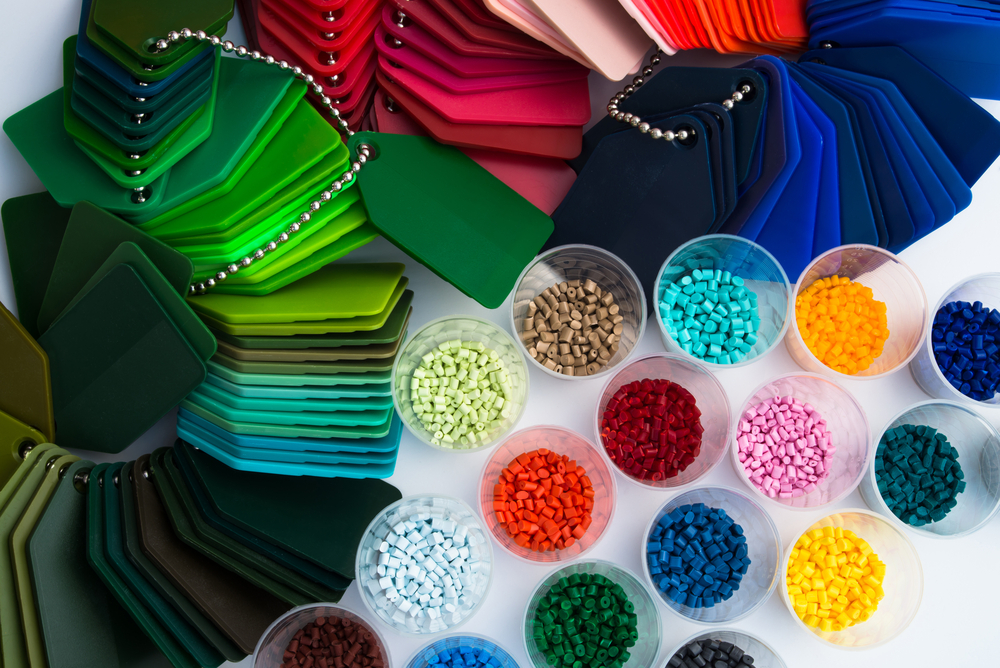In the plastic extrusion process, material selection plays a pivotal role in determining the quality, functionality, and sustainability of the final product. At Plastic Extrusion Technologies, our deep understanding of materials and their properties informs every project we undertake. Selecting the right thermoplastic material is crucial. We evaluate factors like material strength, flexibility, chemical resistance, and more. Our expertise extends to thermoplastic elastomers and commodity plastics, ensuring we can offer a wide range of options. When taking that step in choosing materials, there’s a lot to consider.
Melt Flow Index (MFI): The MFI is a crucial parameter that indicates how the plastic flows under heat. A higher MFI means the material will flow more easily, which is vital for creating detailed and complex shapes. This property is particularly important in our custom extrusion work, where precision and intricacy are often required.
Thermal Stability: Given that the extrusion process involves heating the plastic material, it’s essential to use thermally stable materials. This ensures that the material maintains its properties and structure, avoiding any degradation that could affect the final product’s quality.
Mechanical Properties: Materials are selected based on the required strength, flexibility, and durability. Different applications call for different mechanical properties, and we assess factors like tensile strength, impact resistance, and elongation at break to ensure the material meets the specific needs of the project.
Chemical Resistance: Depending on the application, the extruded products may need to withstand various chemicals or environmental conditions. We carefully choose materials that offer the necessary resistance to chemicals, solvents, and UV radiation.
Cost and Availability: Balancing the cost-effectiveness and availability of materials is a practical aspect of our work. We strive to select high-quality materials that are also economically viable and readily available, ensuring efficient production without compromising on quality.
Environmental Impact: In line with our commitment to sustainability, we consider the environmental impact of materials. This includes looking at recyclability and biodegradability, especially for applications where environmental friendliness is a priority.
Additive Compatibility: Our extrusion processes sometimes involve additives for color, UV resistance, or other enhancements. It’s crucial that the base materials are compatible with these additives, maintaining their properties without adverse interactions.
Shrinkage and Warping Considerations: Different materials react differently as they cool and solidify. We have expertise in predicting and compensating for material-specific shrinkage and warping, ensuring that the final product meets the exact dimensional specifications.
Density and Specific Gravity: These factors are important not just for the extrusion process but also for determining the weight and strength characteristics of the final product.
Since the process of selecting the right materials for plastic extrusion is nuanced, we approach this task with a comprehensive understanding of the diverse properties of thermoplastics. From assessing the melt flow index for precision in detailed designs to ensuring thermal stability for product integrity, every factor is carefully weighed, we we ensure we’re meeting the exact requirements of our clients’ projects.
Delving Deeper into the World of Plastic Extrusion
We know that Plastic extrusion is a versatile and efficient process for creating a wide range of products— But do you? It’s fascinating! From rigid PVC to high-density polyethylene and high-impact polystyrene, the variety of plastics we work with allows us to tailor solutions to specific industry needs.
In the extrusion process, raw plastic material is fed into an extruder, where it’s turned into molten plastic and then pushed through a die to form the desired shape. Our advanced extrusion machines, including both single and twin screw extruders, are key to producing high-quality plastic extrusions.
Our extrusion lines, equipped with sophisticated tooling and machinery like the breaker plate and barrel, ensure consistent quality in our plastic products. These lines are integral in transforming raw plastic material into various products, including plastic sheets, film, and tubing.
At PET, we’re continuously innovating to improve our processes and products. Whether it’s enhancing our plastic extruders or exploring new polymer types, our goal is to offer cutting-edge solutions. From flexible PVC used in medical devices to the blown film extrusion for packaging, our products play critical roles in various sectors, and are always top-of-the-line. That quality is paramount in plastic extrusion so that we can deliver the best results. We ensure that each extruded plastic part, whether it’s part of a complex extrusion line or a simpler plastic tubing, meets stringent standards. This commitment to quality is reflected in the durability and performance of the final product.
Why We’re Different
At Plastic Extrusion Technologies, our experience positions us uniquely to handle a diverse range of materials for various applications. Whether it’s rigid PVC, polyethylene, or specialized thermoplastic compounds, we leverage our expertise to select the most appropriate material for your project. Using that expert knowledge, we at PET are heavily conscious of our environmental impact. We strive to create sustainable plastic products that contribute positively to various industries, using the tools we have at our disposal.
Our commitment goes beyond just manufacturing; we aim to provide solutions that meet your specific needs while adhering to the highest standards of quality and sustainability.

